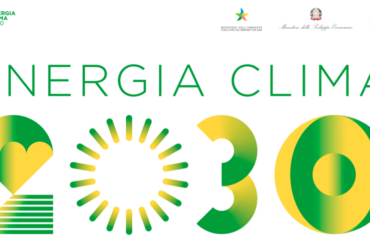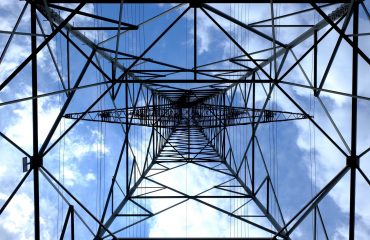
The following article explains the introduction of new frameworks in regard to renewable energy installations in Italy according to the official decree.
On July 14, the Senate renewed its confidence in the Government by definitively approving, in the text dismissed by the Chamber, the bill for the conversion, with modifications, of the Decree-Law no. 50 of 17 May 2022, published in the Official Gazette on 15 July 2022 general series – no. 164 (also known as the “ Aid Decree ”).
This is a measure aimed at adopting measures to combat the systemic effects caused by the Ukrainian crisis, in particular with regard to national energy policies, business productivity and investment attraction.
With regard to the energy sector, with a view to encouraging the production of energy from renewable sources, articles 6 and 7 of the Aid Decree introduced rules for further simplification of the authorization procedures for the construction and operation of plants powered by renewable sources.
Article 6, paragraph 1 of the Aid Decree – in amending article 20, paragraph 4 of Legislative Decree No. 199 of 8 November 2021 (the ” Legislative Decree 199/2021 “) – aims to speed up the process of identifying surfaces and areas suitable for the installation of renewable energy plants, giving the Department for Regional Affairs and Autonomies the possibility of exercising state substitute power in the event of failure by the Regions to adopt laws aimed at delineating suitable areas within the deadline provided for by the legislation in force.
The provision also affects article 20, paragraph 8 of Legislative Decree 199/2021, extending the number of areas that can be classified by law as suitable for the construction and operation of renewable plants pending the identification of suitable areas by of the Regions.
Specifically, in light of the changes introduced as a result of Article 6 of the Aid Decree:
- sites where there are photovoltaic systems on which substantial modification interventions are carried out, for reconstruction, enhancement or complete reconstruction, also with the addition of storage systems with a capacity not exceeding 8 MWh for each MW of power can be classified as suitable of the photovoltaic system (before the approval of the Aid Decree there was a limit of 3 MW, now raised to 8 MW);
- the provision that qualifies as suitable, in the absence of constraints, also extends to biomethane production plants: (a) agricultural areas within 500 meters of industrial, artisanal and commercial areas, including SIN, as well as quarries and mines; (b) inland areas or within 500 meters of industrial plants and factories; and (c) the adjacent areas within 300 meters of the motorway network (before the approval of the Aid Decree, this provision was applicable only to photovoltaic systems);
- the areas not included in the perimeter of the assets subject to protection pursuant to Legislative Decree no. 42 of January 22, 2004 (Code of cultural heritage and landscape – the “ Legislative Decree 42/2004 ”), nor falling within the range of respect for protected assets or of notable public interest referred to in part two and art. 136 of Legislative Decree 42/2004.
It should be remembered that article 22 of Legislative Decree 199/2021, with reference to the construction and operation of plants for the production of energy from renewable sources in suitable areas, has introduced some exceptions to the ordinary authorization procedure. Specifically, with reference to these projects:
- the competent authority in landscape matters expresses itself with a mandatory non-binding opinion and once the deadline for the expression of the non-binding opinion has expired, the competent administration in any case provides for the authorization application;
- the terms of the authorization procedures for installations in suitable areas are reduced by one third.
Well, article 6 of the Aid Decree has expressly extended the scope of application of these exceptions by providing that these apply, where they fall on suitable areas, also to the electrical infrastructures connecting the plants for the production of energy from renewable sources and to the necessary ones. for the development of the national transmission grid, if strictly functional to the increase of the energy that can be produced from renewable sources.
They have also been adopted – with paragraphs 2 quater and quinques– incentive measures to encourage the implementation of new projects and interventions for the social, economic and productive development of the municipalities in whose territories there are areas subject to concession for the production of plants powered by geothermal energy sources; in particular, the holders of concessions for the construction and management of these plants – pursuant to Legislative Decree no. 287 of 29 December 2003 and to law no. 99 of 23 July 2009 – starting from 1 January 2023, they will be required to pay a contribution equal to Euro 0.05 for each kilowatt hour of electricity produced by the relative geothermal plant of the cultivation. Within ninety days from the date of entry into force of the Aid Decree, by decree of the Minister of Economic Development,
Further simplifications are then introduced with reference to tourist and spa facilities for which it is expected, for a period of 24 months from the entry into force of the conversion law, that they can be implemented with the administrative regime of the DILA (sworn declaration of start of works). projects of new photovoltaic systems with modules placed on the ground with a power not exceeding 1,000 kWp, located within areas in the availability of such structures, aimed at using self-produced energy for the needs of the structures, provided that the areas are located outside historical centers and are not subject to protection pursuant to Legislative Decree 42/2004 (see article 6, paragraph 2 septies of the Aid Decree).
Lastly, again Article 6 of the Aid Decree establishes that within sixty days from the date of entry into force of the conversion law, the Ministry of Culture shall establish, with its own deed, uniform criteria for evaluating projects for energy plants from renewable sources. . This, with the aim of facilitating the conclusion of the proceedings, ensuring that the motivation of any negative assessments gives adequate evidence of the existence of stringent, proven and precise needs for the protection of cultural or landscape interests, in compliance with the specific characteristics of the different territories. .
Moving on to article 7 of the Aid Decree, this too envisages significant innovations, introducing significant forms of procedural simplification for the authorization of plants for the production of electricity from renewable sources.
These innovations primarily concern the projects subjected to an Environmental Impact Assessment (“ EIA ”) of state competence.
In particular, it is established that in the authorization procedures of electricity production plants powered by renewable sources, if the project is subject to an EIA under state competence, the resolutions of the Council of Ministers replace the EIA provision for all purposes and this also in the event of conflicting assessments by the competent environmental administrations.
The Presidents of the Regions and Autonomous Provinces concerned participate in the meetings of the Council of Ministers in question, but without the right to vote, to express the position of the reference administration and of the non-state administrations that have participated in the authorization procedure.
The resolutions expressed by the Council of Ministers then converge in the single authorization procedure which must be peremptorily concluded by the competent administration within the following sixty days and, if the decision of the Council of Ministers expresses itself for the issue of the EIA provision, this term has elapsed unnecessarily of sixty days, the authorization is deemed to have been issued.
Furthermore, article 7 of the Aid Decree intervenes in various ways on the authorization procedures connected to the construction and operation of renewable plants, providing that:
- for the construction of plants other than those fueled by biomass, including biogas plants and plants for the production of biomethane of new construction, and for photovoltaic plants, the proponent, when submitting the application for authorization, can request the declaration of public utility and the affixing of the preordained constraint to the expropriation of the areas affected by the construction of the plant and related works.
- the simplified authorization procedure (PAS) for the construction and operation of photovoltaic systems up to 20 MW located in quarries or lots of quarries not susceptible to further exploitation may also concern the location in “portions of quarries”, it being understood that the same they must not be susceptible to further exploitation.
- with regard to ceased quarries and mines, not recovered or abandoned or in conditions of environmental degradation considered suitable areas pursuant to the law for the installation of plants for the production of electricity from renewable sources, portions of quarries and mines not susceptible to further exploitation.
- with regard to the standard that subjects to PAS the installation of photovoltaic systems with a power of up to 10 MW in floating mode on the water mirror of reservoirs and reservoirs, including water reservoirs in disused quarries, the plants in question can be placed also in the water reservoirs in the quarries in operation (see modification of article 9 – ter of the Energy Decree).
Furthermore, it is appropriate to point out that with the provisions referred to in Article 7 – bis of the Aid Decree, the deadline for the start of work for the interventions carried out under a qualification issued pursuant to Article 12 of the Legislative Decree n. 387 of 29 December 2003 is set for three years from the issue of the relative qualification.
The Aid Decree therefore follows the path already outlined by the Simplifications Decree and the Energy Decree, demonstrating a unitary, albeit fragmented, intention of the legislator towards promoting the consumption of energy from renewable sources.
About the author:

Italian qualified lawyer, Tommaso has a fifteen-year extensive experience in domestic, cross border and multi- jurisdiction mergers and acquisitions, joint venture, corporate finance, private equity transactions involving both listed and privately held companies.
He has a particular expertise in transactions in highly regulated activities as well as in the infrastructure sector and, in particular, in the energy, transport, water and waste sectors.
His experience also includes assistance in favor of developers and lenders in relation to development projects in the energy sector, with particular reference to renewable energy assets (solar, biomass, wind, hydrogen) and transport infrastructure (electricity and gas transport, electricity and gas distribution, gas storage and LNG plants).
He has an extensive experience in negotiation and drafting of M&A contracts, facility agreements, EPC, O&M, PPA contracts and supply contracts in public and private sectors.
Tommaso awards a LL.M Master Degree in Business & Corporate Law at City Birmingham University and has more than 15 years of experience in primary international law firms in London, Milan and Dubai.
Tommaso is Italian native speaker and is fluent in English and Spanish
Read more on PwC blog here.
Empowering Renewable Energy Developers with Green Dealflow
If you’re exhausted from the lengthy process of finding investors for your renewable energy projects, we’ve got a solution. Our specialized service matches you with professional investors and off-takers swiftly. With over a decade of experience and a close network in the renewable energy sector, we significantly reduce your transaction time by matching you with ideal investors who meet your criteria. Read more and unlock the full potential of your renewable energy projects.

